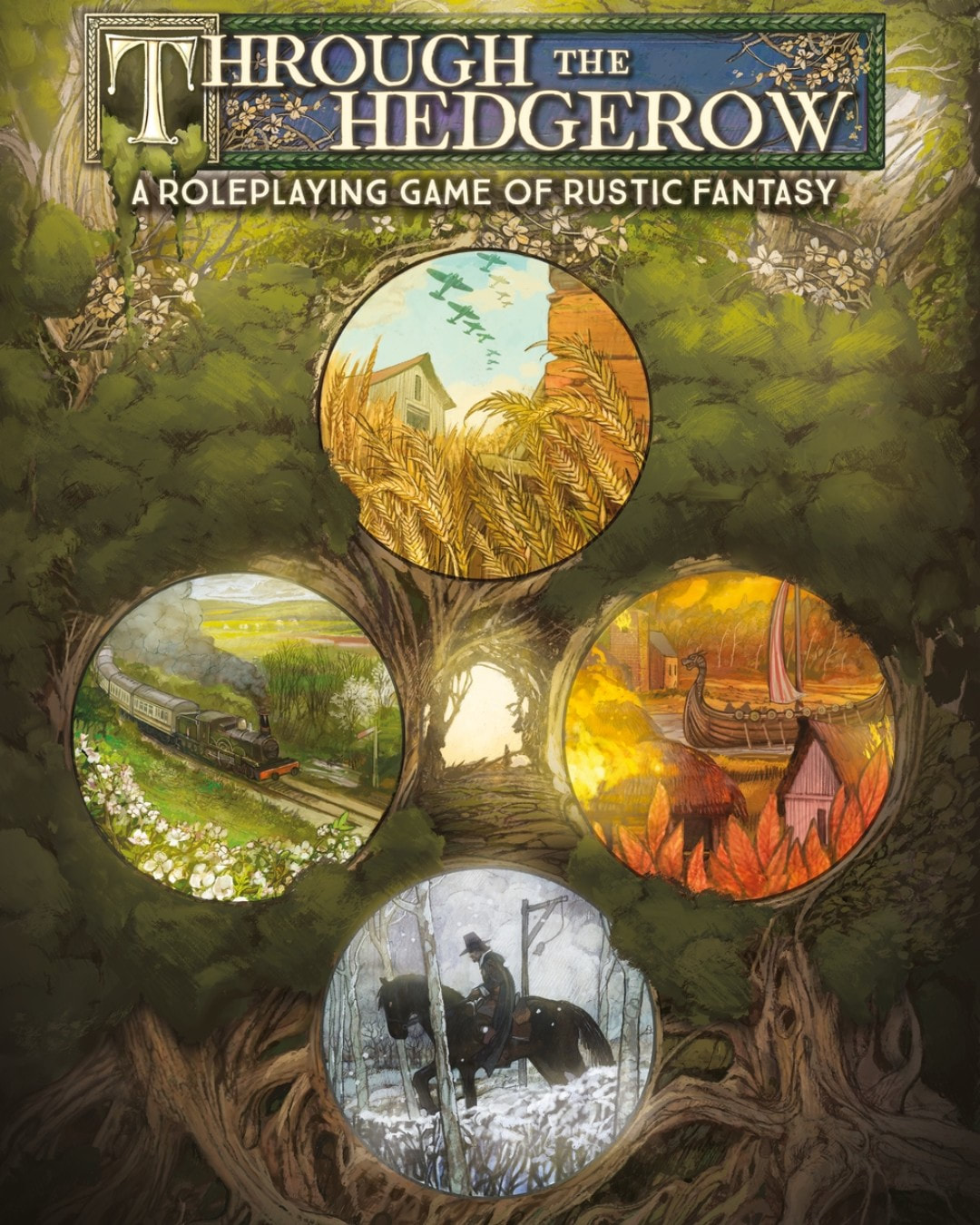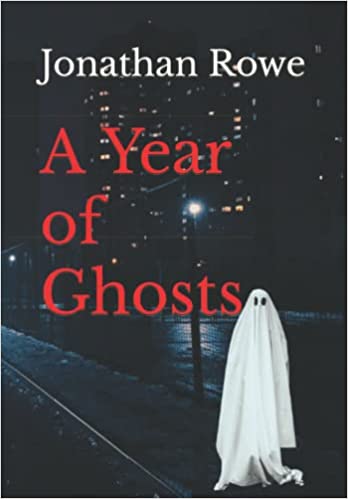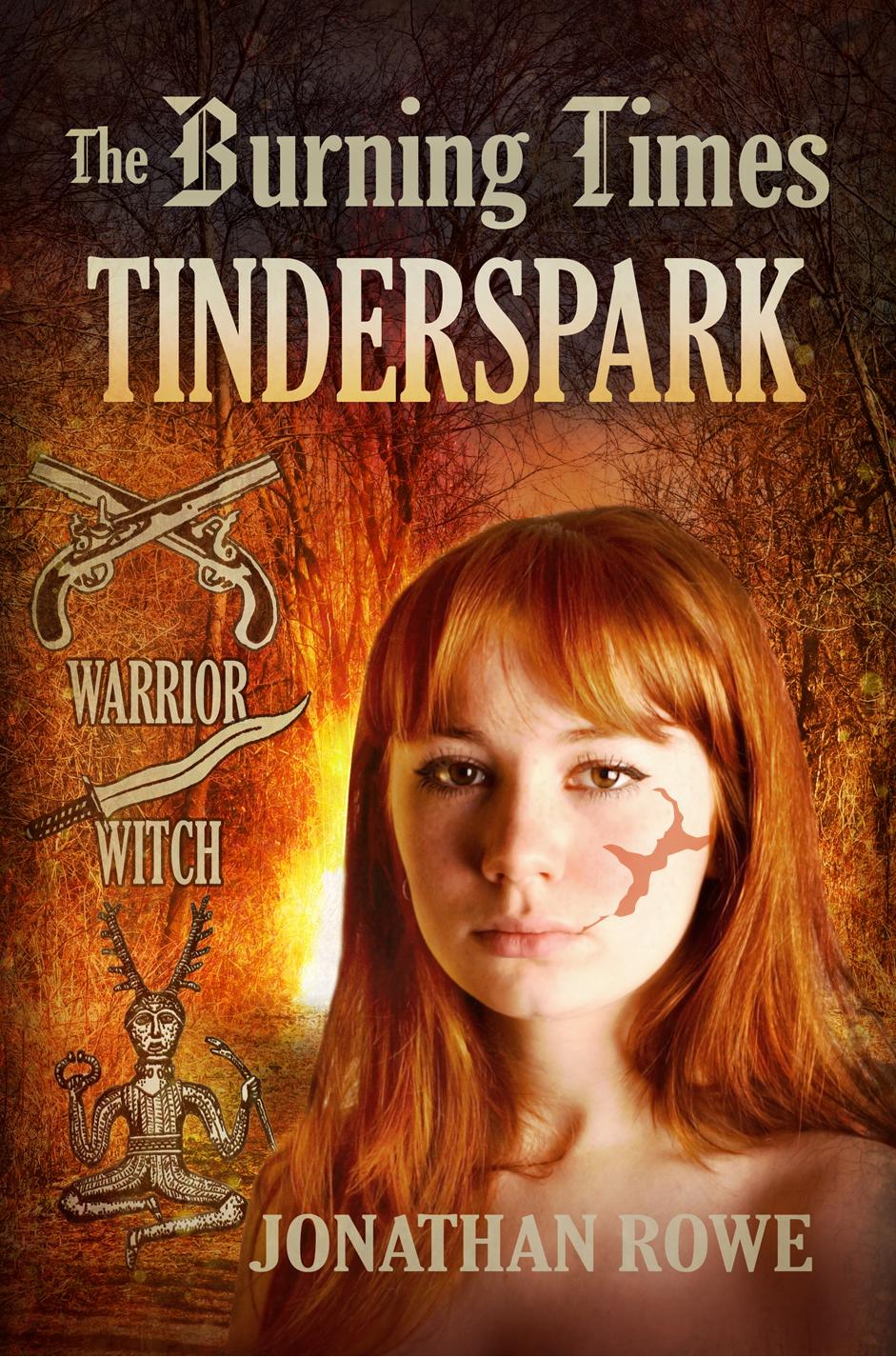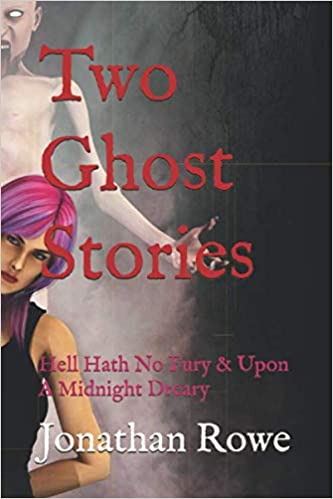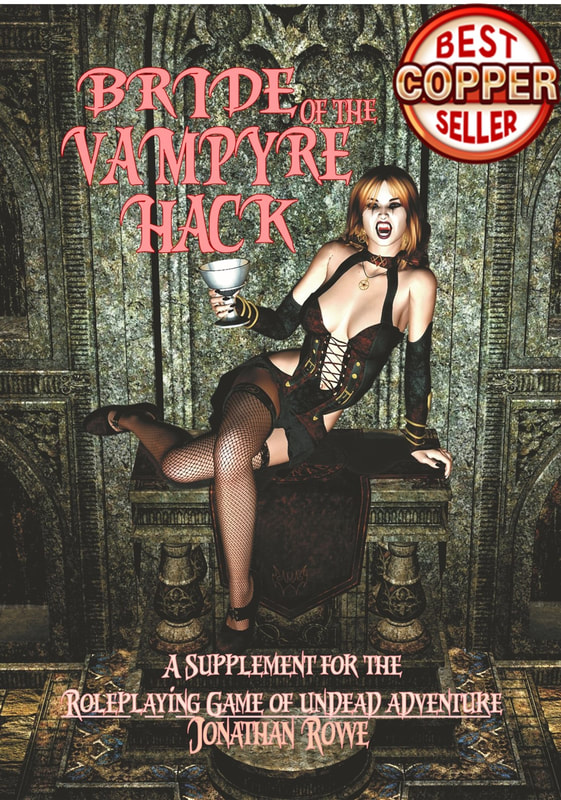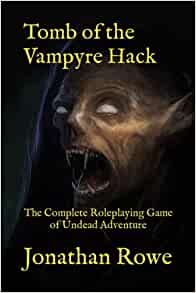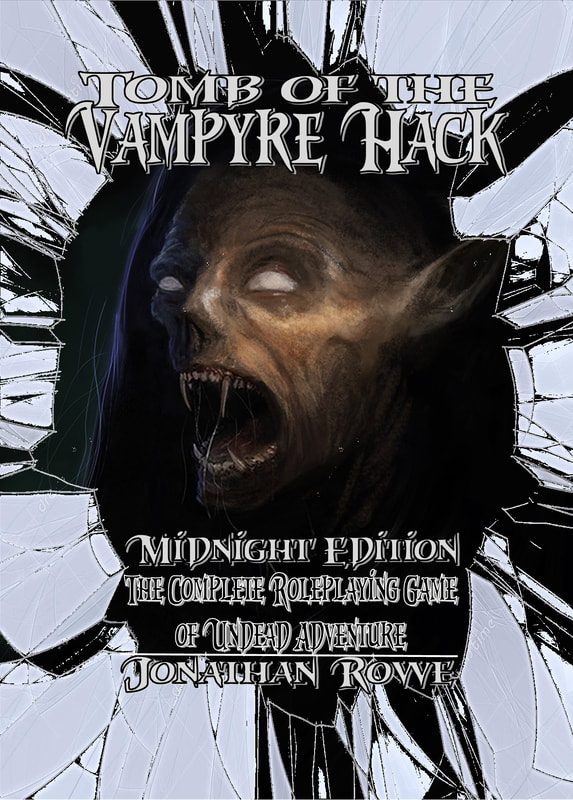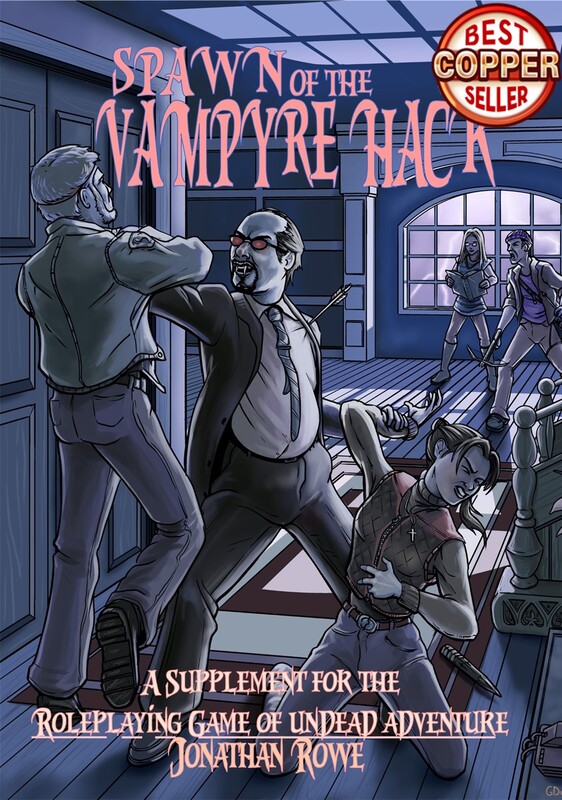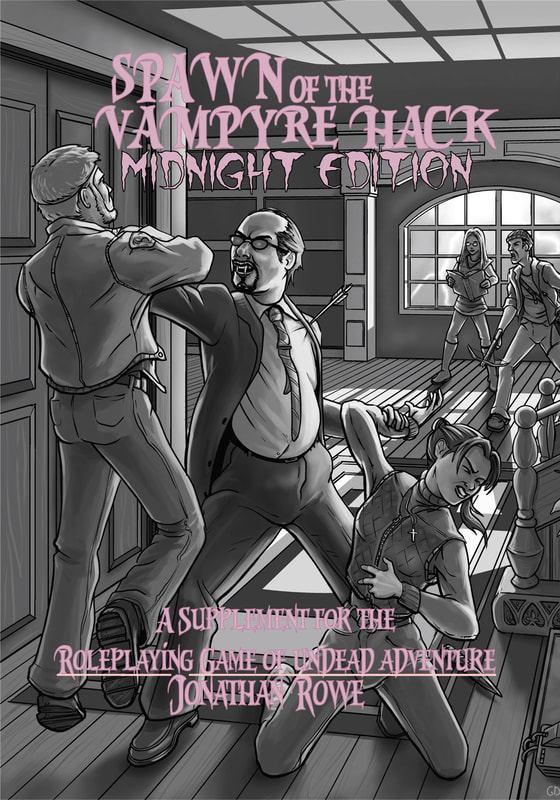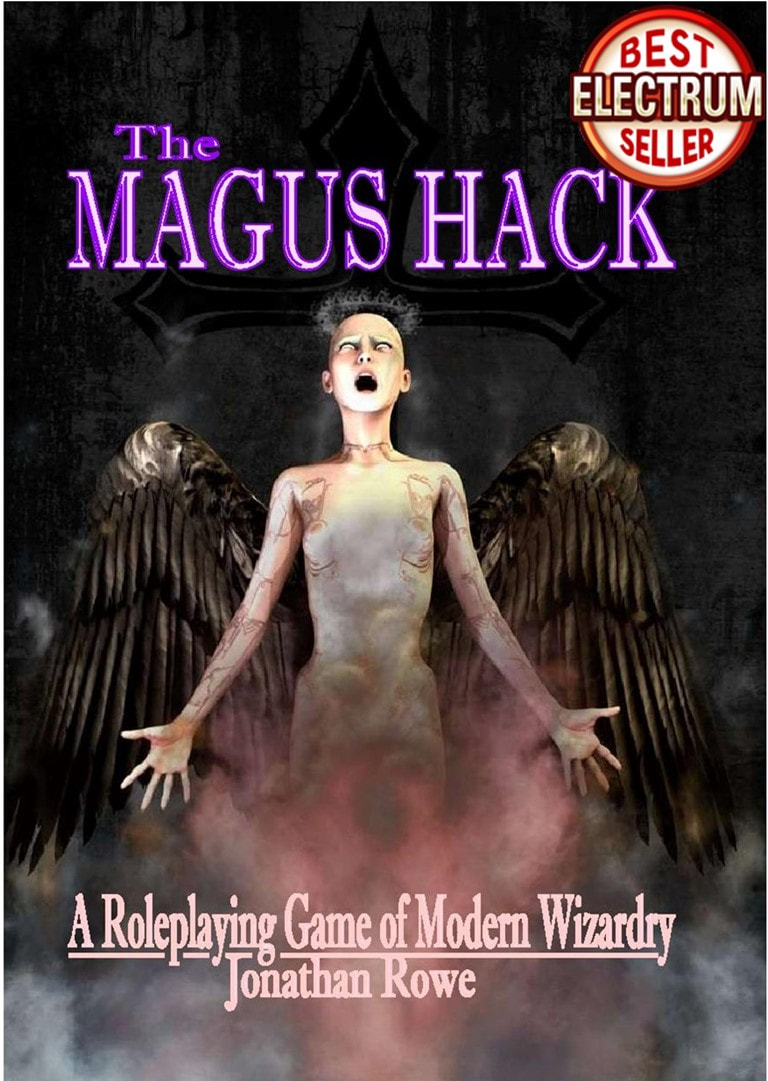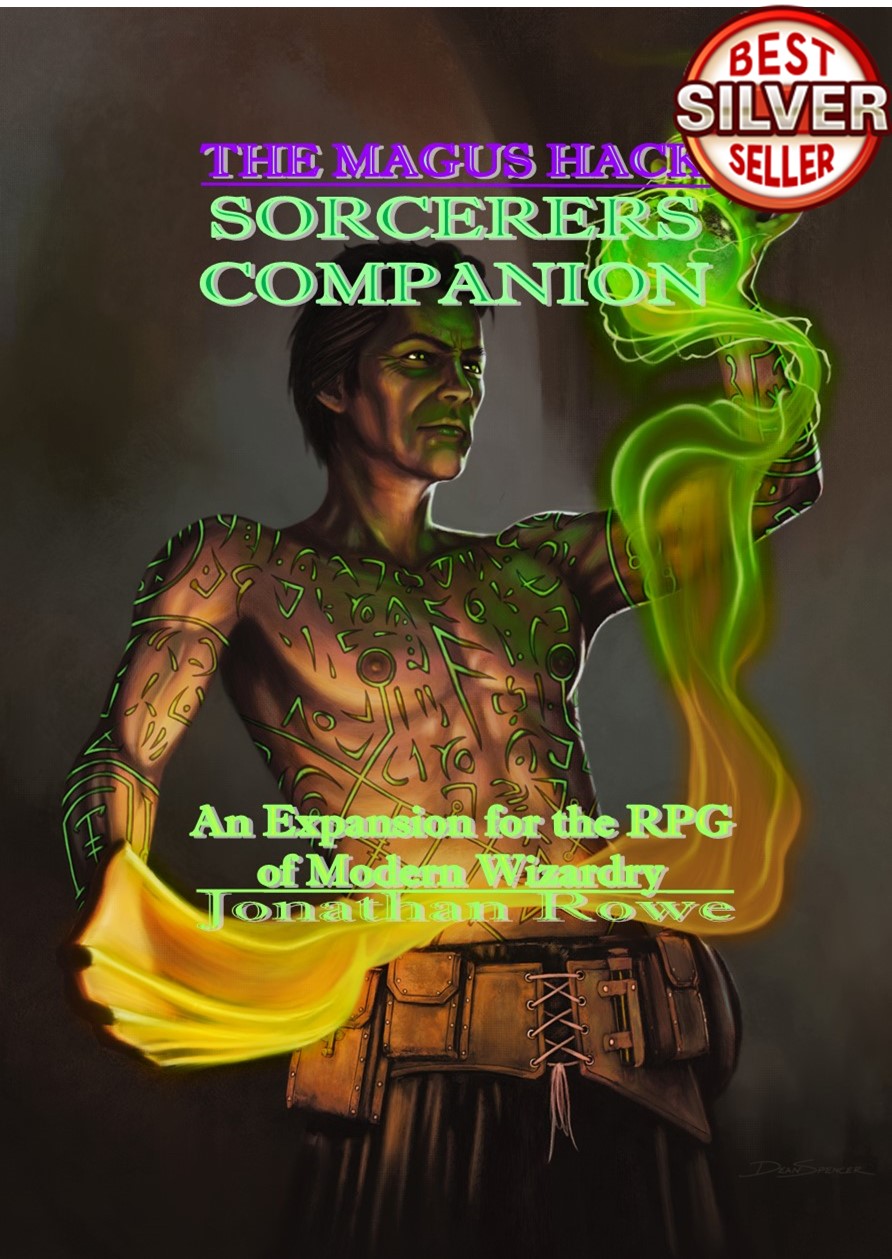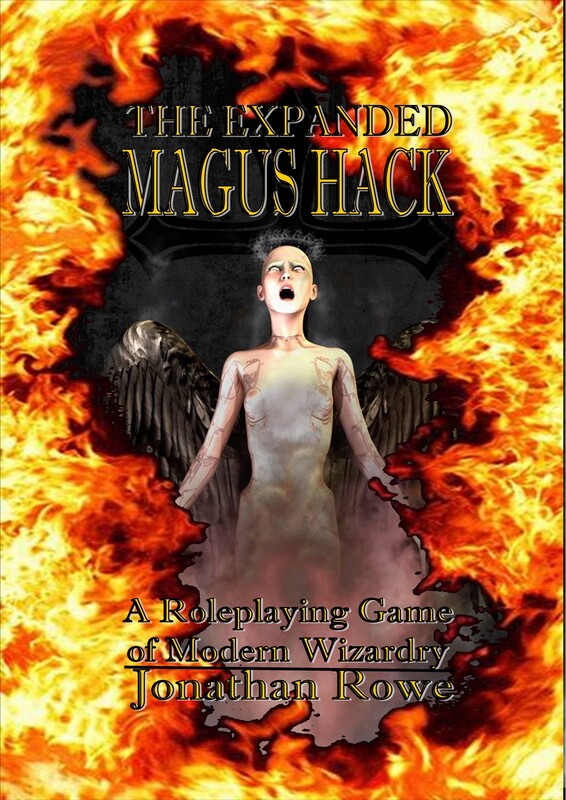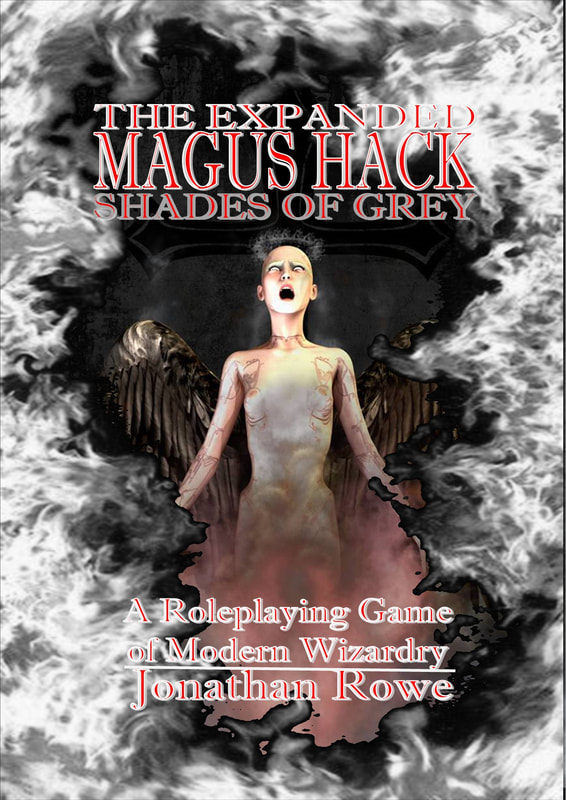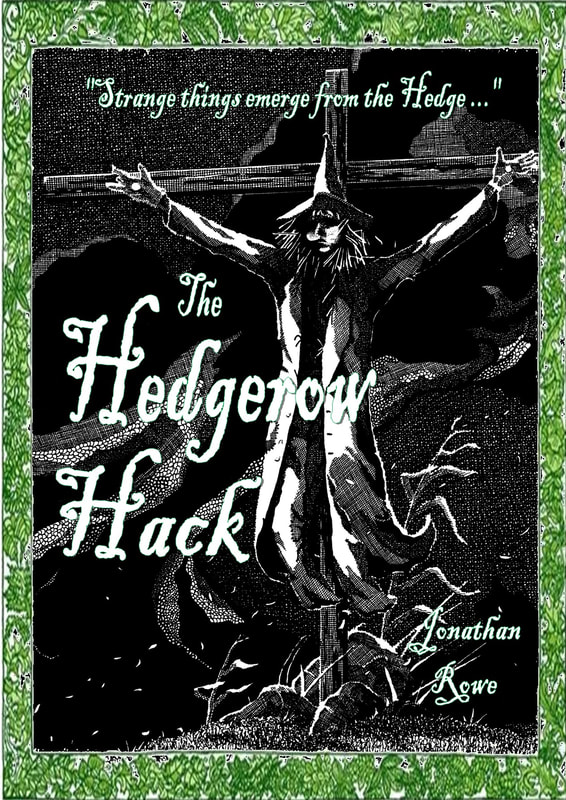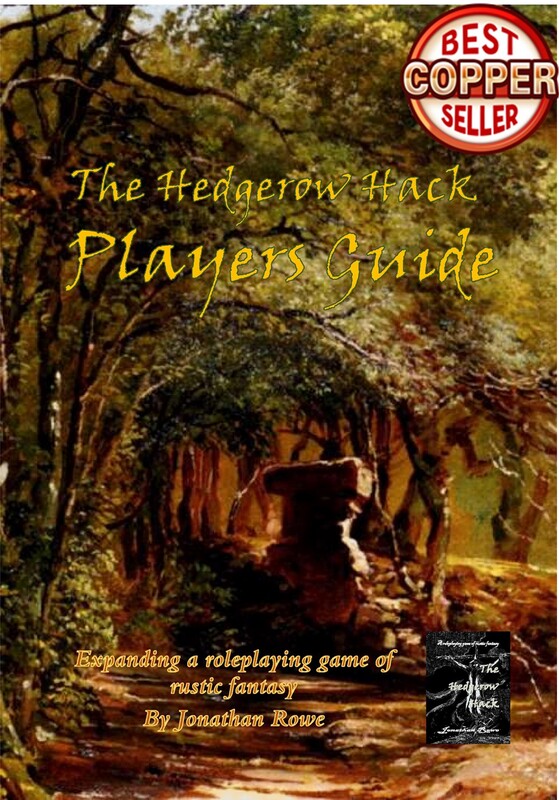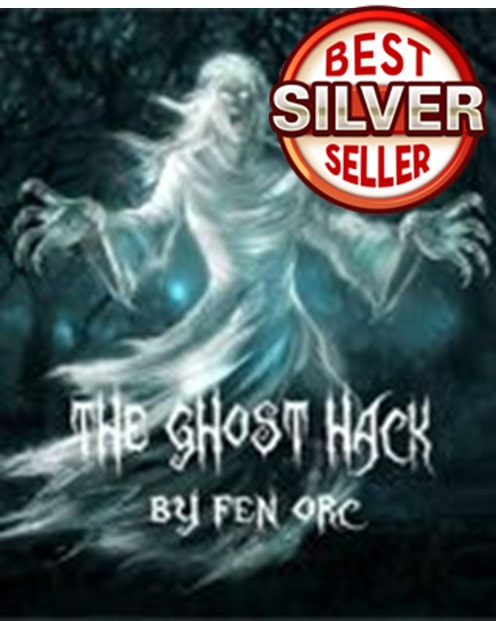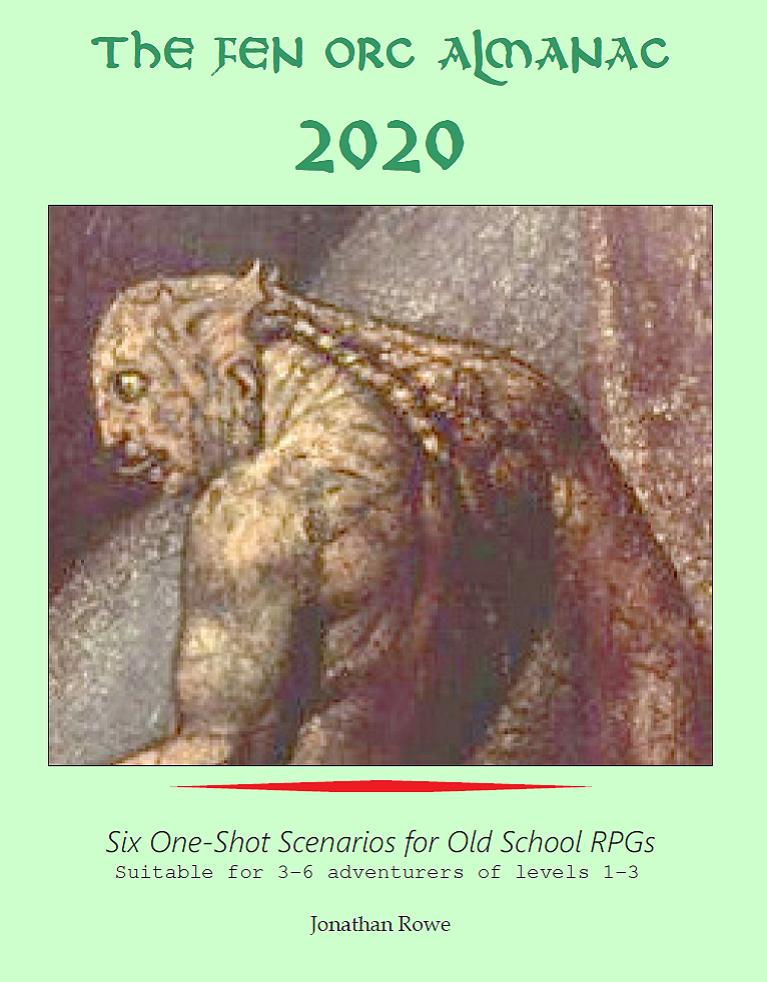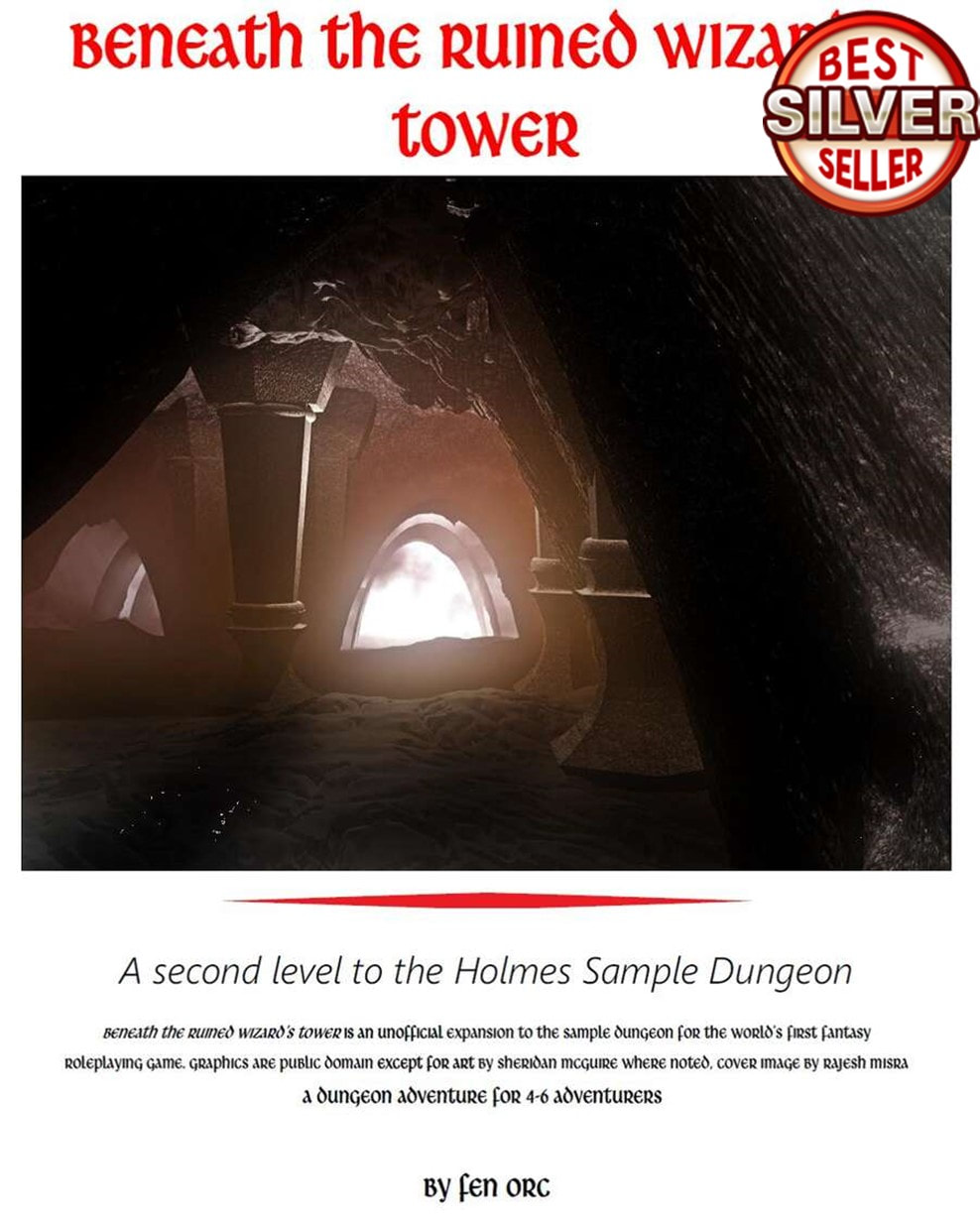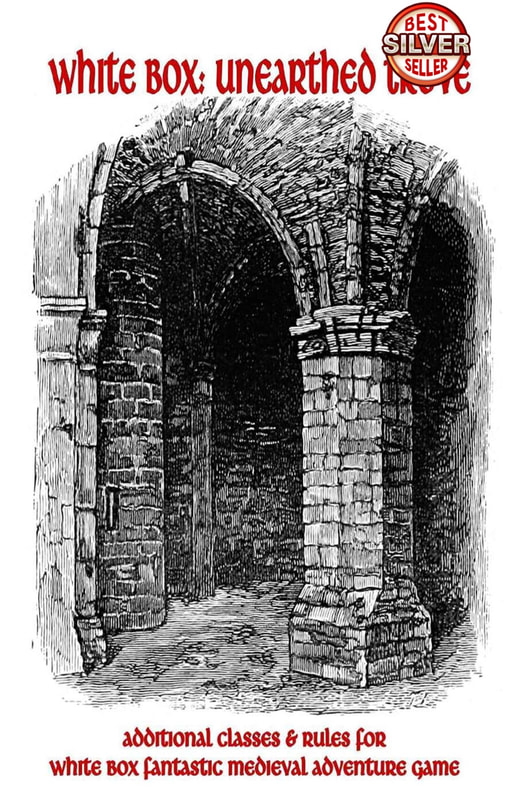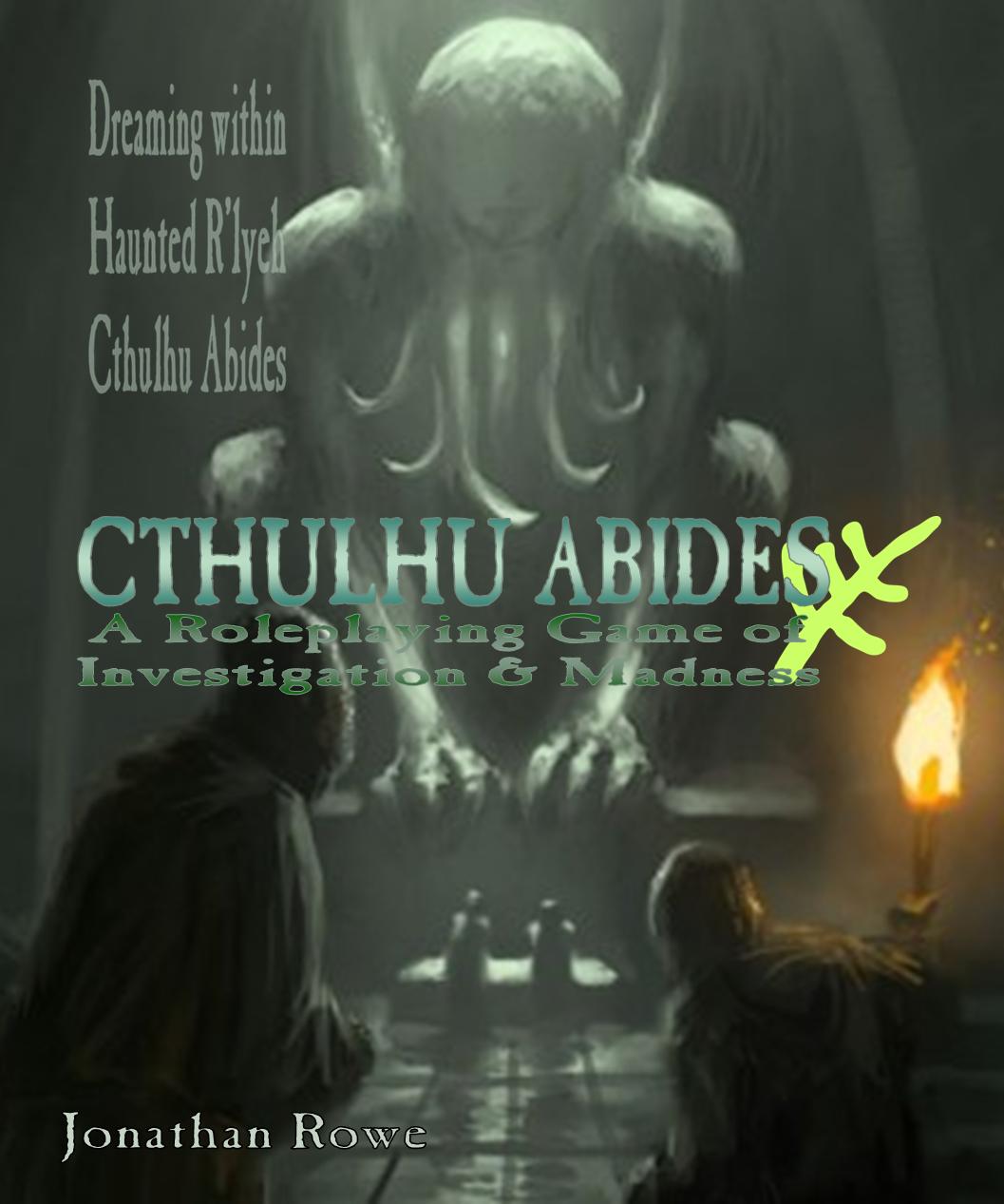|
I'm working through the rulebook for the late-'90s fantasy heartbreaker Forge Out of Chaos because it speaks to something in my OSR soul. I've covered the magic system in blogs that looked at simple but restrictive Divine Magic and the more potent but unreliable Attack Magic. A third type remains. Enchantment is a type of Pagan Magic. In Forge, this means it's a sorcerous ability that was once granted (illicitly) to mortals by the gods - in this case by Dembria, goddess of Enchantment - but since the gods went into Exile, mortals have figured out how to do it by themselves. They don't do it accurately or consistently and they have to power it themselves, but it works and you don't need to go kowtowing to Grom or Berethenu to make it happen. Enchantment differs from Attack Magic in that it is permanent, or potentially so. Yes, we're in the business of creating indefinite magical effects: changing form, granting powers, boosting stats, making armour and weapons more potent, reshaping the world around you. In other words, the cool stuff. How it works (or doesn't) As with other sorts of Pagan Magic, you start with a number of spell slots equal to your Intellect and you can choose spells of your current level or (with penalty) the level above, so 1st level casters have access to 1st or 2nd level spells. You have a pool of Spell Points (SPTS) to use, on average around 20, and with a base cost of 6 SPTS for 1st level spells, Enchantment is pretty cheap. When you go up a level in Magic, you usually get another half dozen spell slots and a dozen more SPTS. The big choice is whether to add more spells to your repertoire or improve the ones you've already got. Yes, you can use up a spell slot to re-roll on those Schematics Tables, hoping to improve your spell's area of effect, saving throw modifier and of course the HSE (Hidden Side Effects). Only with these spells you have something else to worry about: Maintenance Points. Paying Maintenance Enchantment spells don't have 'Duration' - they last for as long as you keep paying the Maintenance Cost out of your SPTS. These SPTS that have to be spent on Maintaining spells are Maintenance Points (MPTS). MPTS are determined by those 'schematics' tables too. A 1st level spell could take 6 MPTS to maintain every day; that's a very poor roll and it means the spell costs as much to maintain as it did to cast it in the first place. It could cost as little as 1 MPT per day; that's an amazing roll that you will probably only get if you invested more than the minimum 10 Skill Slots into Magic or if you are re-rolling the 1st level spell when you've reached a higher level. The maintenance costs increase predictably: 2nd level spells cost as much as 7 MPTS and as little as 2; 3rd level costs as much as 8 and as little as 3, and so on. You'll notice though that the maintenance isn't keeping pace with the casting cost. It will cost 18 SPTS to cast a 3rd level spell but, at the very worst, only 8 MPTS to maintain it. The schematics for MPTS and Area of Effect for 1st level spells. Rather than learning an extra spell, you could re-roll an existing one. If you invested 12 Skill Slots in Magic you get +2 on one table. Which table would you apply the bonus to? Schematics for level 4 spells. Even on a good roll, they probably cost as much or more to maintain as a 1st level spell that rolled badly. Instead of learning an extra spell, would it be better to re-roll one of these or try and make that 1st level spell even cheaper to maintain, now that, being 3 levels higher, you get a +6 bonus to split between the tables for 1st level spells? Enchanters, therefore, get powerful fast, since they only need to cast a spell once (usually during downtime) and the measure of their power is how many spells they can maintain. Re-rolling your spells to push down the maintenance cost is therefore a better strategy than going for a wide range of spells that cost a lot to maintain. Problems with Maintenance The rules state that Mages recuperate 5 SPTS for every 2 hours of sleep, up to a maximum of 20 SPTS a day. In other words, sleeping more than 8 hours offers no further benefit. This makes 20 MPTS the sustainable maximum for your spell-load. If they add up to more than 20 MPTS, then you're running down your reserves and eventually you won't be able to cast any new spells or meet the cost of maintaining current ones: you have to let a spell dissipate. The flat limit of 20 SPTS a day seems rather blunt. It's exactly the sort of limit that ought to vary from character to character. The Benefits & Detriments rules (pp17-18) could be extended to cover traits like Heavy Sleeper (+2, regain 6 SPTS per 2 hours) and Light Sleeper (-2, regain 4 SPTS per 2 hours) which could be chosen by Mages at character creation. A Percentage Skill like Meditation (INS x 2) could be used to regain 2 SPTS above and beyond the sleep-limit after an hour of successful meditation. A creatures of Dembria, surely the Dunnar should regain 1 SPT every hour that they spend away from sunlight? It's not clear when exactly the MPT levy has to be paid. As soon as you wake up, whenever that is? But what if you stayed up all night? At dawn or midnight, irregardless? That seems a bit arbitrary. At the hour of the spell's first casting? Too much book-keeping there! It's best to make each Enchanter choose their 'payment occasion' which is the point at which they pay maintenance on their spells. Characters could choose a fixed time (midnight, noon) or a relative time (dawn, the setting of the moon) so long as it's an unavoidable daily occurrence. It makes sense to choose a time that comes immediately after the +20 SPTS you earned from a good sleep but before anything can occur in the day to force you to spend or lose more SPTS: 8am or 9am are sensible choices. Raw ingredients Other forms of Pagan Magic need spell components and it's a big restriction on starting Mages that they cannot afford the components for all the spells they would like to cast. But at least those components are permanent once you own them and they only risk exploding if you "pump" a spell and it backfires on you. Enchantment also requires spell components. The good news is they tend to be a bit cheaper than the ones for Attack Magic; the bad news is they are entirely used up when you cast the spell. This extract gives you a flavour of the spell components on p117. Some you could harvest yourself (although good luck getting Dungwala ashes the hard way). Emeralds are pricey! The lower level (1st-4th level) spells tend to involve the cheaper ingredients of course. Casting Literacy to grant yourself or someone else some languages involves 2oz of gold dust (20gp) and a glass lens (5gp), which is not 'nothing' but a starting Mage could stretch to that. The 2nd level spell Friendship is a sort of 'Charm Person' spell, but with components including 4oz of gem dust (100gp), you're not going to be throwing it around. That emerald is one of the components for the 8th level spell Ego Meld, that lets you steal someone else's body. Considering the benefits (effectively, immortality), it's good value for money. Of course, you might only ever cast a spell once, so the components are a one-time investment. But when five members of your party want Night Vision, this 1st level spell requires 2oz of gem dust per casting, so that will set you back 260gp. Hopefully your friends will contribute to the costs... Casting time & hanging spells Enchantment magic is time-consuming: 5 minutes per level of the spell. Given Forge's maddening 1 minute melee rounds, this means you could perhaps fire off a 1st and maybe even a 2nd level spell if you hung back from combat if no one bothered you (that's a big 'if') but, practically speaking, you won't be casting these spells down the dungeon or on the road. Casting enchantments is a downtime activity. This creates a problem with experience checks that the rules don't address. Normally, Mages check their Magic Skill every time they cast a spell in a crisis situation (i.e. during an adventure), but Enchanters usually cast their spells during sedate downtime. Even if we grant them a check for this, Enchanters just don't cast spells often. In fact, once a spell is cast, they might never cast it again. Enchanters will advance in Magic painfully slowly, if at all. One solution is to grant Enchanters a check to Magic for every spell that is active when they complete the adventure and every spell they pay MPTS for during the adventure. This isn't entirely satisfactory. If the PCs go on a 3-day wilderness quest, an Enchanter with 5 spells active will get 15 checks to Magic (5 on completing and 10 for the spells maintained during the adventure). Another Mage might well not cast 15 spells in that time. On the other hand, multi-day adventures aren't the norm in dungeon-crawler games like Forge and perhaps Enchanters need a slight edge over those Elementalists and Necromancers. Something else missing from the rules is any consideration of 'hanging' a spell that you cast and paid for earlier. Some Enchantment spells do have tactical potential: you might want to cast Friendship on a monster you meet during an adventure - indeed, it's difficult to imagine a situation where anyone will sit obediently for 10 minutes and wait for you to cast a spell like that on them. Curse is another 2nd level spell that only seems to have tactical potential: it imposes a stiff penalty to someone's Attack Value, which is great in combat, except that it takes 10 minutes to perform, by which point a lot of fights are winding down. Who are you going to cast this on during downtime, with its range of 'Touch'? A simple House Rule is to allow Enchanters to cast a spell earlier and leave it 'hanging' until it's needed, whereupon it can be cast like any Attack Magic spell. You use up the ingredients, spend the SPTS and you have to maintain the hanging spell like any other, but you don't get any Skill Check for it until it actually gets triggered. This creates an incentive to cast Curse at home (12 SPTS, 4 oz of gem dust and a crushed lodestone so that's 110gp) and maintain it as a hanging spell, so that when you meet that Ogre you can zap him with the Curse you prepared earlier, claim your Skill Check and probably stop paying maintenance for it (since the point is to make the creature easier to kill, right?). The spells themselves D&D mixes together its permanent effect spells (Continual Light, Magic Mouth, etc) with the wham-bam tactical stuff. By hiving off the permanent magics, Forge creates an interesting option for Mages.
Defensive enchantments are more appealing. Mystic Robes grants you (and only you) an Armour Rating which could go as high as 6 (that's like Plate Mail and for 11gp worth of components, it's a bargain). Protection from Magic offers you a Save Modifier (potentially up to +6 and for only 10gp in silver dust) against Magic. I prefer the Robes, especially since Enchanters can't wear armour. Then there are the 'utilities', like Light (familiar from D&D but at 51gp you might think twice), Magic Lock (what it says, but it can be picked although at a penalty), Night Vision (granted to anyone) and Strengthen Weapon (granting a weapon a chance of not being 'notched' which warriors will clamour for but since it involves 50gp in gem dust they had better pay). The smart thing is probably to pick just a few of these (Robes, obviously; Strengthen Weapon to please your friends; Light, I think; Night Vision too) and use your extra slots to re-roll them to push the MPTS down. If you try to learn 2nd level spells while your Magic level is only 1, you get a -2 penalty on all the schematics. Nonetheless, Curse and Friendship, described earlier, make the Enchanter a dangerous opponent, especially if we use the House Rules to 'hang' spells. Runes improves on Strengthen Weapon by making a weapon count as magical for purposes of hitting mystical creatures. Enchanted Vestment improves on Mystic Robes by granting you 10-30 Armour Points - now that's real protection and cheap for 24gp in components!
These spells have much more potential in campaign play and out-of-dungeon adventures than the other spell lists. High level enchantments allow for all sorts of magical traps and banes to put on weapons, tougher defensive spells, more dramatic utilities, telepathy, invisibility, golem-building, magic item crafting and, at 7th level, Solidify Magic lets you sacrifice dozens of permanent SPTS so that you no longer have to pay MPTS to maintain your crafted magic items: they are independent of you now. The implications of Enchantment: show me the money Enchantment is definitely where the long-term fun is in a Forge campaign. It provides a more logical power progression than D&D spells (Invisibility is hard to pull off), rationalises the creation of magical items and offers a log term goal in Ego Meld (stop ageing, just steal younger bodies). It gives a sense of the texture of a fantasy world where these magical effects are, if not commonplace, at least known about. What's lacking is some sort of payment chart to help you calculate how much NPC Enchanters will charge you to cast these spells. If you don't like Capitalism, stop reading now. Obviously, you have to pay the cost of the components. Friendly Mages (Reaction 76+) might let you provide them yourself, but most will insist on sourcing their own "to ensure quality" and charge you double for their trouble. Then there's the daily fee to the Mage for providing the Maintenance Points to keep the spell going. Back in the '80s, Paul Vernon wrote an excellent series of articles for White Dwarf called Designing a Quasi-Medieval Society for D&D. Vernon constructs D&D economies around the 'Ale Standard' and proposes that a minimum wage labourer ought to be able to slake his thirst at the end of the day for a tenth of his income. Since a pint of ale on the Forge pricelist is 10sp, this means you're paying pack-bearers and torch-holders 1gp a day. On a previous blog, I calculate this to be the equivalent of £50 in modern money. If we assume that a Mage-for-hire considers each of his Spell Points to be worth a day's work for a peasant, we can start calculating. If we assume a Mage-for-hire has the worst maintenance costs based on the schematics, so a 1st level spell requires 6 MPTS/Day, therefore 6gp per day. Yes, the Mage might have rolled better than that and actually only spends 5 or 4 or even 1 MPT/Day, but he won't tell you that. We must also assume the other schematics are at rock-bottom, so hiring Strengthen Weapon gives you a sword that is 50% likely to notch. Let's say you can increase the effect by one bracket by paying the base cost all over again, so 12gp/day gives a result of 45%, 18gp produces 40% and if you want a sword that only has a 25% chance of notching, you had better pay 36gp/day. Then there are the HSE (Hidden Side Effects) and the Mage doesn't want to bear them on your behalf, so that schematic has to be increased by three brackets as standard, just to improve the spell to a safe level: a 1st level spell begins at a minimum 24gp/day and goes up from there in 6gp intervals if you want to improve its effects. Applying this logic, 2nd level spells begin at 28gp/day and go up in 7gp intervals; 32gp/day plus 8gp intervals for 3rd level spells; 36gp/day plus 9gp for 4th level spells; a big hike to 50gp/day plus 10gp for 5th levels spells and 66gp/day plus 11gp for 6th level spells. Let's try a worked example. You visit Melzon the Enchanter because you want Night Vision for a forthcoming quest. The components cost him 52gp so he charges you 104gp. He contracts to provide you with Night Vision for a week. Rolling 1d20, we find that Melzon's Night Vision schematic has a range of 70ft (two brackets past basic) so Melzon charges 36gp/day or 252gp for the week: after components, that's 356gp, thank you very much, payment up front, to see at night like a cat, for a week. If a Forge gold piece is worth £50, then you're paying nearly £18K for this enhancement. Imagine Melzon has a neighbour and rival, Lozeb the Lonely, who has Magic to 2nd level. Lozeb can put Runes on your sword for the week, charging you 200gp for the gem dust needed and 196gp for the week's duration: a Rune-buffed sword for 396gp. Watch out: your sword dissolves when the spell ends. I bet Lozeb insists on providing the sword himself "to ensure quality" and charges double for that, so add in 50gp for the broad sword for 446gp total cost (over £22K). Why not get Lozeb to provide the Night Vision too? Lozeb will charge 2nd level rates for it, even though it's a 1st level spell. After all, why should he rent out his SPTS for anything less than their full value? So his Night Vision will cost you 42gp/day or 398gp (after components) for the week. It pays to shop around, but I bet the Mages don't like that. Lozeb will be cross if he finds you've been sneaking off to that upstart Melzon for a cheaper deal on Night Vision. His contract probably stipulates that you don't engage other Mages while he's working for you and if he finds out that you've done that (and he will find out) then he stops paying the maintenance cost for the spells at once and good luck claiming your money back! This all assumes Lozeb has access to all the spells, which he won't. But let's assume Enchanters-for-hire combine to form business associations so they can cover as many spells as possible and they all charge the rates of the highest-level Mage in the partnership. So if you go to the fancy offices of Gro Finbar Associates (headed up by a 4th level Magic user) you can get all your spell-needs met if you pay as if a 4th level Mage was providing them (even if, actually, it's a 1st level junior partner doing the work). Or go back to Melzon for that Night Vision: he's a sole trader, charging 1st level rates, but he's probably only got 3 or 4 spells to offer. Enchanters-for-hire don't like short contracts. They make their money providing the Baron with Light in his study all the year round, or granting Herbology to a gardener for the whole summer. A bottom-feeder like Melzon might offer Night Vision for a single evening, but I bet Lozeb charges for a week, minimum, and Gro Finbar Associates charge you for a month, even if you only need the spell for a week. A 6th level Mage won't bother enchanting anything for less than a year. This means, if you think your butler has been stealing the silverware and want to put a Truth spell on him, you might only want the spell to be in effect for an hour or two, but Lozeb the Lonely will bill you for a week: that's 378gp, including components, to make the butler confess. It might be cheaper to let him keep stealing... Nonetheless, some spells are very useful. The 3rd level spell Tongues grants you any language. A 3rd level Mage probably insists on charging you for a fortnight, but 618gp is a fair price if you really need to know Ghantu for an upcoming mission (for the record, Gro Finbar Associates charge 1178gp because they bill you for a month minimum). Whew. OK. I enjoyed that. These costs seem right for player characters: cheap enough that spells could be purchased by successful adventurers for particular quests, expensive enough to put magic out of the reach of starting characters. A bit pricey for ordinary people, perhaps? Of course, magic isn't for ordinary people, but these are definitely "adventurers' rates". Remember that, for established businesses like Gro Finbar Associates, adventurers are terrible customers. Yes, they pay cash up front, but that's the only good thing about them. They are erratic customers and they often acquire spell-casting allies or henchmen of their own who service them for free. They purchase a service then disappear off for weeks. Often they don't come back at all. They rarely have good reputations.
No, Enchanters-for-hire want a respectable clientele who need spells maintaining either perpetually or regularly. The Baron wants his favourite boar spear to have Strengthen Weapon on it all year round; the chief constable of the watch wants Night Vision available to him right up until he retires; the merchant prince wants Tongues for the duration of each yearly trade envoy and Magic Lock on his coffers the year round. These people are returning customers and they get much better rates: less than half what player characters pay or even bigger discounts for perpetual enchantments that have been in place for years. And it's worth bearing in mind what enchantments will be enjoyed by well-heeled NPCs, especially if the PCs intend to do something silly, like rob them...
0 Comments
Leave a Reply. |
30 Minute Dungeons
Essays on Forge
FORGE Reviews
OSR REVIEWS
White Box
THROUGH THE Hedgerow
Fen Orc
I'm a teacher and a writer and I love board games and RPGs. I got into D&D back in the '70s with Eric Holmes' 'Blue Book' set and I've started writing my own OSR-inspired games - as well as fantasy and supernatural fiction.. Archives
July 2024
Categories
All
|

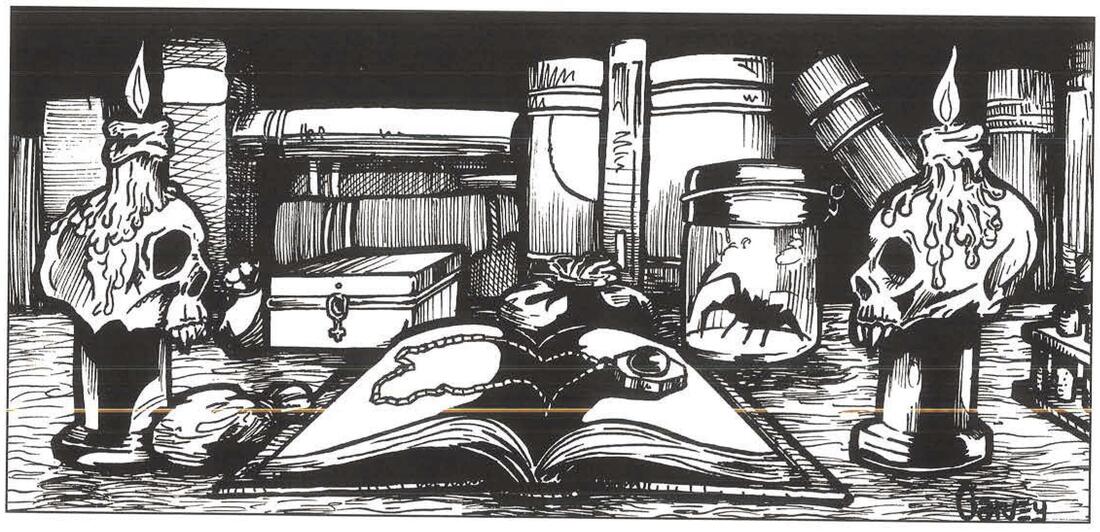
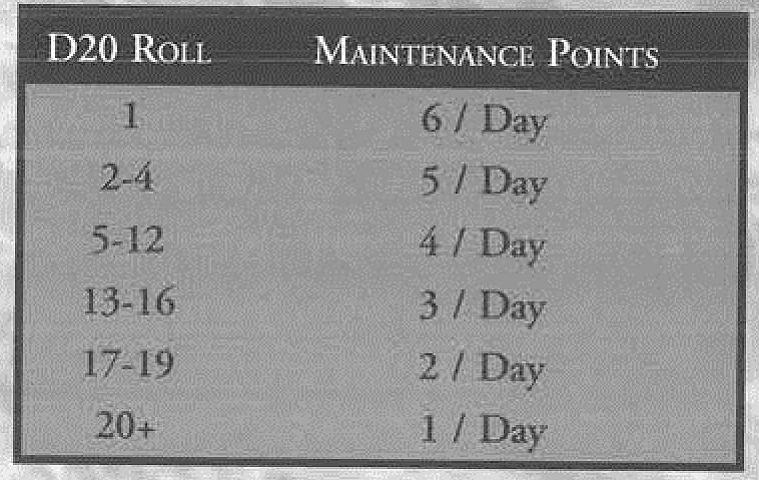
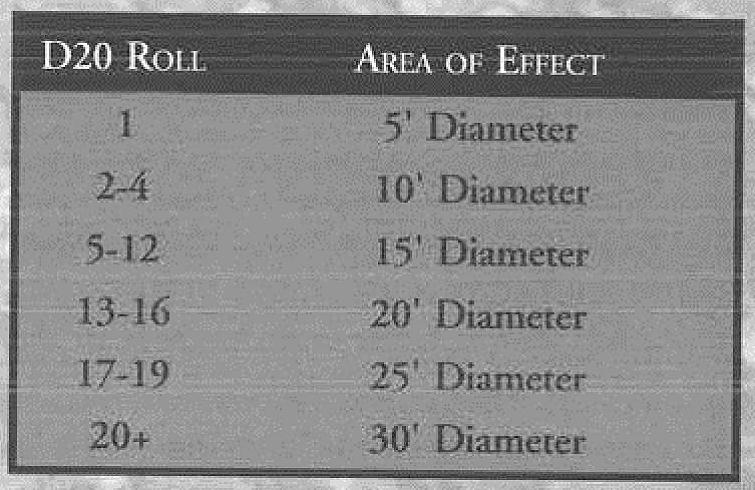
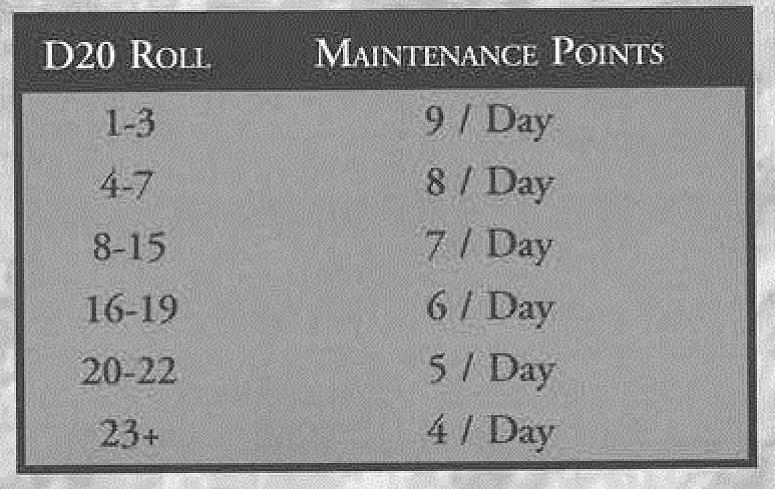
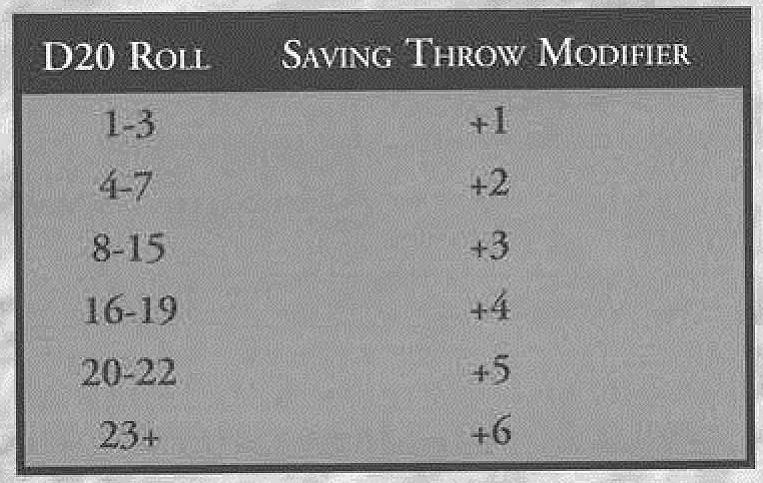
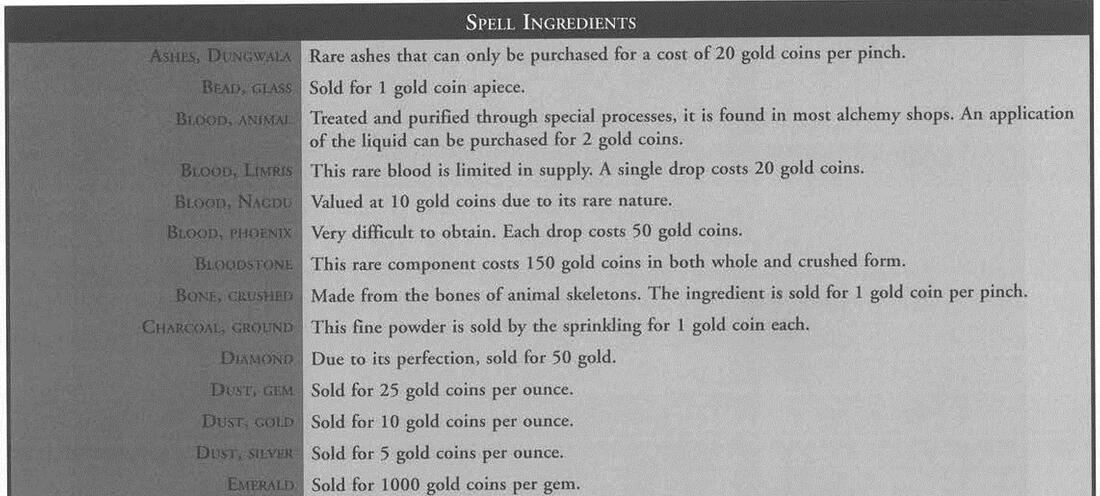
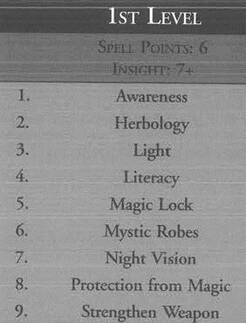
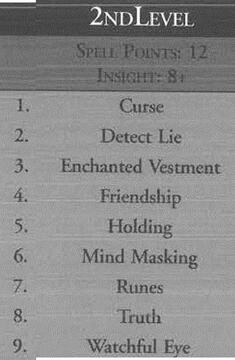


 RSS Feed
RSS Feed
